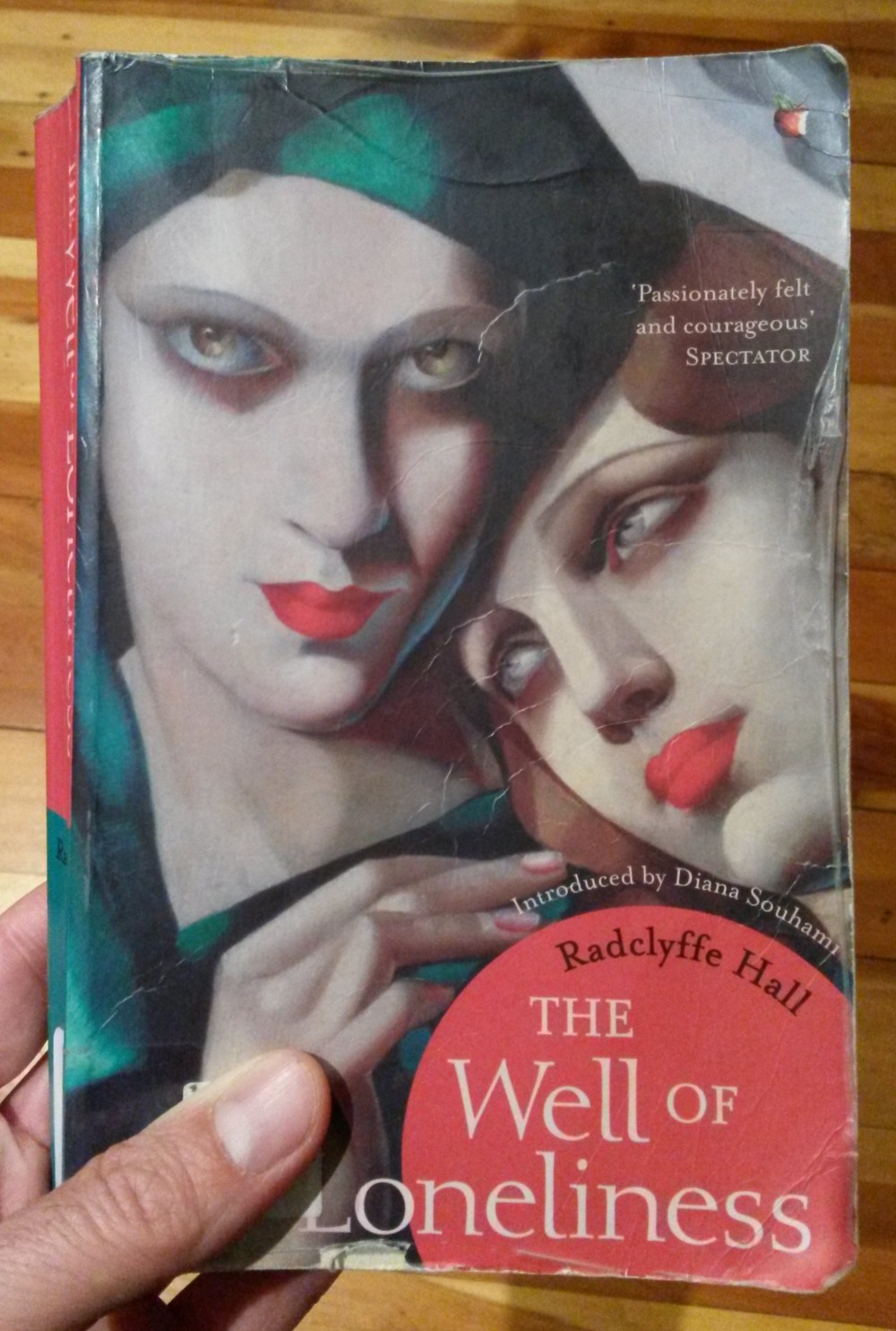 This story is about a tomboyish girl called Stephen. It traces her life from her birth and upbringing in a wealthy and genteel English family in the late 1800s, through the first world war and on to a successful career. She never feels quite comfortable conforming to the model of a well-brought-up young woman, and it takes many years to realise what the reader already knows, that she is (in her own words) an “invert”. Of course, such things were not discussed back then, at a time when the authorities did not even acknowledge lesbianism’s existence, and would have made it illegal if they had. The book was banned (and burned) on publication in 1928 in England.
This story is about a tomboyish girl called Stephen. It traces her life from her birth and upbringing in a wealthy and genteel English family in the late 1800s, through the first world war and on to a successful career. She never feels quite comfortable conforming to the model of a well-brought-up young woman, and it takes many years to realise what the reader already knows, that she is (in her own words) an “invert”. Of course, such things were not discussed back then, at a time when the authorities did not even acknowledge lesbianism’s existence, and would have made it illegal if they had. The book was banned (and burned) on publication in 1928 in England.
Initially I couldn’t warm to Stephen because she is so privileged in many ways. She’s rich, physically masterful, intelligent, and has a very supportive and understanding father and other carers. She’s also a brilliant equestrian, fencer and writer. But I realised that this just throws her problems into stark relief — nobody will explain or even acknowledge her feelings of not belonging; hence she does spend a lot of time in the “well of loneliness” of the title. She rails against the unfair fact that she will never be able to acknowledge her partner as such, or even to grieve her properly if she dies, without suffering awful societal consequences. It reminded me of the film Four Weddings and a Funeral, where (spoiler alert) even at Gareth’s funeral, Matthew, his loving partner of many years, could be referred to only as “his closest friend”.
Some of the most affecting writing comes when Stephen’s parents, initially devoted to each other, see their relationship start to crumble as the truth about Stephen becomes apparent.
Ugly, degrading, rather terrible half-truths; and he knew the whole truth, yet he dared not speak it. It is bad for the soul to know itself a coward; it is apt to take refuge in mere wordy violence.
…
Ugly, degrading, rather terrible half-truths. Their hearts ached while their lips formed recriminations. Their hearts burst into tears while their eyes remained dry and accusing, staring in hostility and anger.
…
Mad, it was madness! … They knew that it was madness and yet they persisted, while their anger dug out for itself a deep channel, so that future angers might more easily follow.
It’s heartbreaking, the way people do this to one another.
Later in the story, Stephen does wax melodromatic as she bristles under the oppression of a hostile world and an uncaring god. But she does it in a way that really made me feel the injustice of it all, and made me glad how much things have improved in the last hundred years. And Stephen’s mood is often quieter and more reflective:
A gentle but persistent sense of depression enveloped her whole being like a soft, grey cloak; and she did not wish to shake off this cloak, but rather to fold it more closely around her.
Even the Well of Loneliness can sometimes seem like a place of refuge.